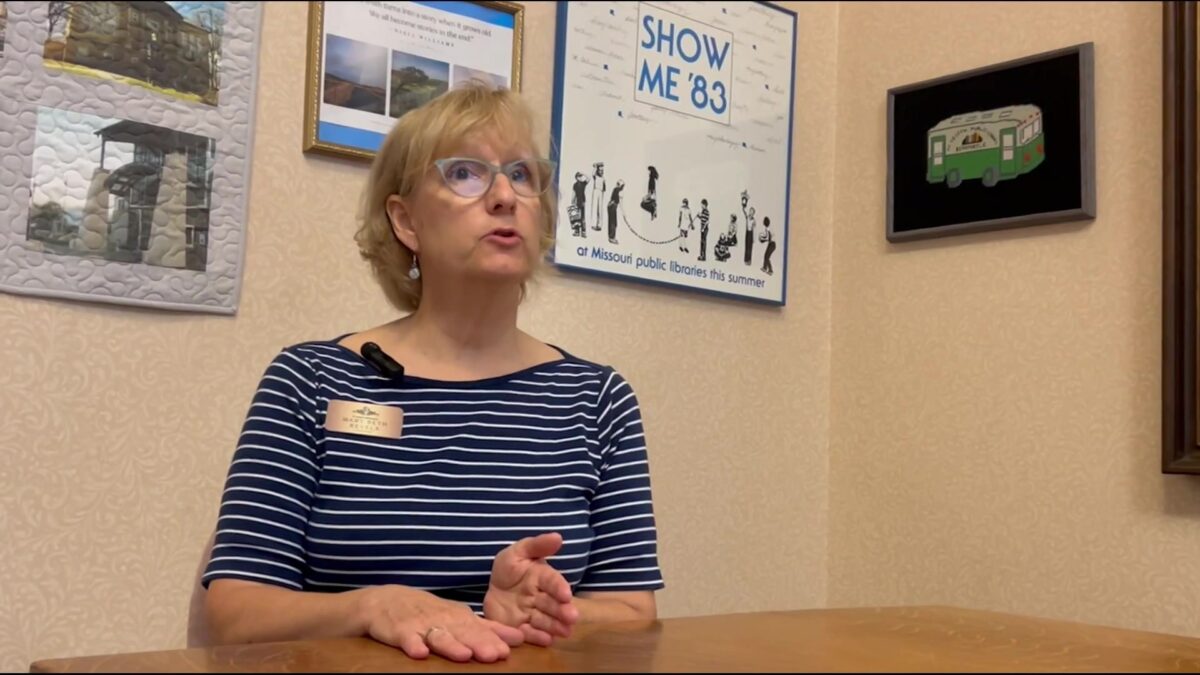St. Joseph libraries concerned about future funding

Charles Christian
ST. JOSEPH, Mo. (News-Press NOW) — A possible benefit for property owners could cause funding challenges for local libraries.
Discussions about changes in property tax laws in Missouri, highlighted by statewide discussions about the future of the tax, have raised concerns about the future funding stability of libraries statewide, including the two library systems which serve St. Joseph.
St. Joseph is served by two library systems: the St. Joseph Public Library and the Rolling Hills Library. Although both systems have library foundations and private donors who help support them, it’s estimated that over 90% of their funding comes from property taxes assessed within boundary lines.
 This map shows the property tax lines for both St. Joseph Library Systems. SJPL’s jurisdiction is shown blue and Rolling Hills is shown in yellow.Courtesy of Rolling Hills Library
This map shows the property tax lines for both St. Joseph Library Systems. SJPL’s jurisdiction is shown blue and Rolling Hills is shown in yellow.Courtesy of Rolling Hills Library
Those lines are set by laws that prevent residents from being “double taxed” for libraries. St. Joseph Public is funded by taxes assessed within the boundary of the 1965 city limits of St. Joseph. Rolling Hills is a county-based system that serves Andrew County and portions of Buchanan County through taxes assessed to properties outside of the 1965 city limits of St. Joseph.
Michelle Mears, the Rolling Hills library director, said its new library, which is projected to open in 2026, is not affected directly by changes in property taxes, but the future of its staffing activities would be.
“Our future operations could well be affected,” Mears said. “If we lose a significant part of our funding, who is going to pay the electric bill, and how are we going to pay staff?”
Mary Beth Revels, St. Joseph Public Library Director, echoes those concerns, noting that while no one enjoys paying taxes, libraries are just one of the many community necessities that come from property taxes in Missouri.
“Tax revenues support cities and schools,” Revels said. “It also supports libraries, and when that revenue is frozen, then our budget doesn’t grow, even though our expenses continue to grow.”
There are three ways property taxes can be affected, based on statewide discussions.
First, at times, property tax incentives are given to new businesses moving into the city. Whether it affects one of the four St. Joseph Public Library branches or the Rolling Hills Library depends on the location of the business in question and how those who make funding decisions approach the incentive.
As a city-based system, the St. Joseph Public Library is subject to the decisions of the mayor and city council of St. Joseph.
As a county-based system, Rolling Hills is subject to the oversight of the county commissioners in the counties Rolling Hills serves. Mears said a second way property taxes would be affected would be if the state somehow decides to eliminate property taxes.
“The elimination of property taxes is the biggest concern,” Mears said. “Real property taxes from both individuals and businesses are necessary to sustain our public schools and our public libraries, among other things. The elimination of these would be devastating to both.”
Revels said the wide range of benefits offered to the community, including reading programs for all ages, also extends to providing technology to those seeking jobs, tax assistance, play spaces for families and providing needed curriculum for those who may not be able to afford books for every level of education.
“It says free library on this building,” Revels said. “It’s really not free, though. Your taxes pay for this.”
The third challenge comes from a recent provision that allows individuals ages 62 and older to opt out of a year of property taxes assessed by the State of Missouri. This, too, could affect the library budgets in St. Joseph, but Buchanan County Commissioner Ron Hook said he doesn’t feel that this measure alone will cause issues with either county or city libraries in the long run.
“The state and counties are catching up on their property assessments, which for many of us means that the valuation and the taxes are higher,” Hook said. “Also, relatively few people have filed the paperwork to receive the yearlong property tax break, and those two factors should not have a negative overall effect.”
Hook also said county commissioners are committed to the reading programs and other activities that serve both St. Joseph and the rural areas that rely on services and programs from the library.
While other discussions continue regarding the future of property taxes, library leaders said they’re relying upon advocates and patrons of the libraries to speak up on behalf of public funding.
“I’m glad there are representatives from smaller counties who are speaking up about this,” Revels said.
According to a recent NPR report, the state committee exploring changes to property taxes in Missouri is “in no rush” to recommend a final decision on the matter.